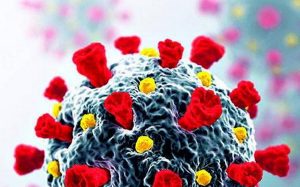Monoclonal antibody Therapies:

India is facing shortages of the monoclonal antibody therapy
Monoclonal antibodies:
- They are artificially created antibodies that aim to aid the body’s natural immune system.
- They target a specific antigen — a protein from the pathogen that induces an immune response.
- Monoclonal antibodies can be created in the lab by exposing white blood cells to a particular antigen.
- To increase the number of antibodies produced, a single white blood cell is cloned, which in turn is used to create identical copies of the antibodies.
- In the case of Covid-19, scientists usually work with the spike protein of the SARS-CoV-2 virus, which facilitates the entry of the virus into the host cell.
- In a healthy body, the immune system is able to create antibodies — tiny Y-shaped proteins in our blood that recognise microbial enemies and bind to them, signalling the immune system to then launch an attack on the pathogen.
- However, for people whose immune systems are unable to make sufficient amounts of these antibodies, scientists provide a helping hand- using monoclonal antibodies.
- The idea of delivering antibodies to treat a disease dates as far back as the 1900s, when Nobel-prize winning German immunologist Paul Ehrlich proposed the idea of a ‘Zauberkugel‘ (magic bullet), a compound that selectively targets a pathogen.
- From then, it took eight decades of research to finally arrive at Muromonab-CD3, the world’s first monoclonal antibody to be approved for clinical use in humans.
- Muromonab-CD3 is an immunosuppressant drug given to reduce acute rejection in patients with organ transplants.
- Monoclonal antibodies are now relatively common. They are used in treating Ebola, HIV, psoriasis etc.




